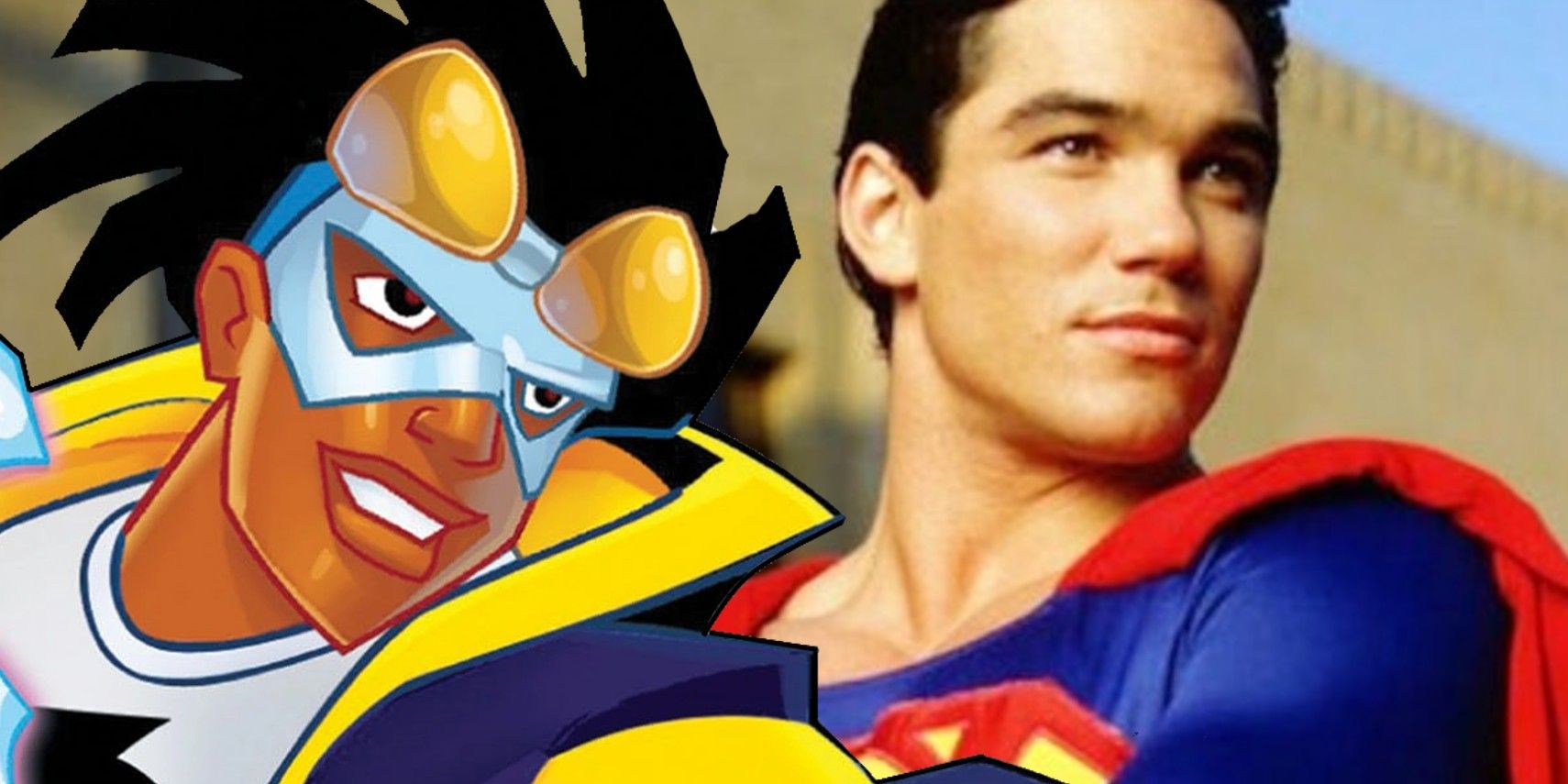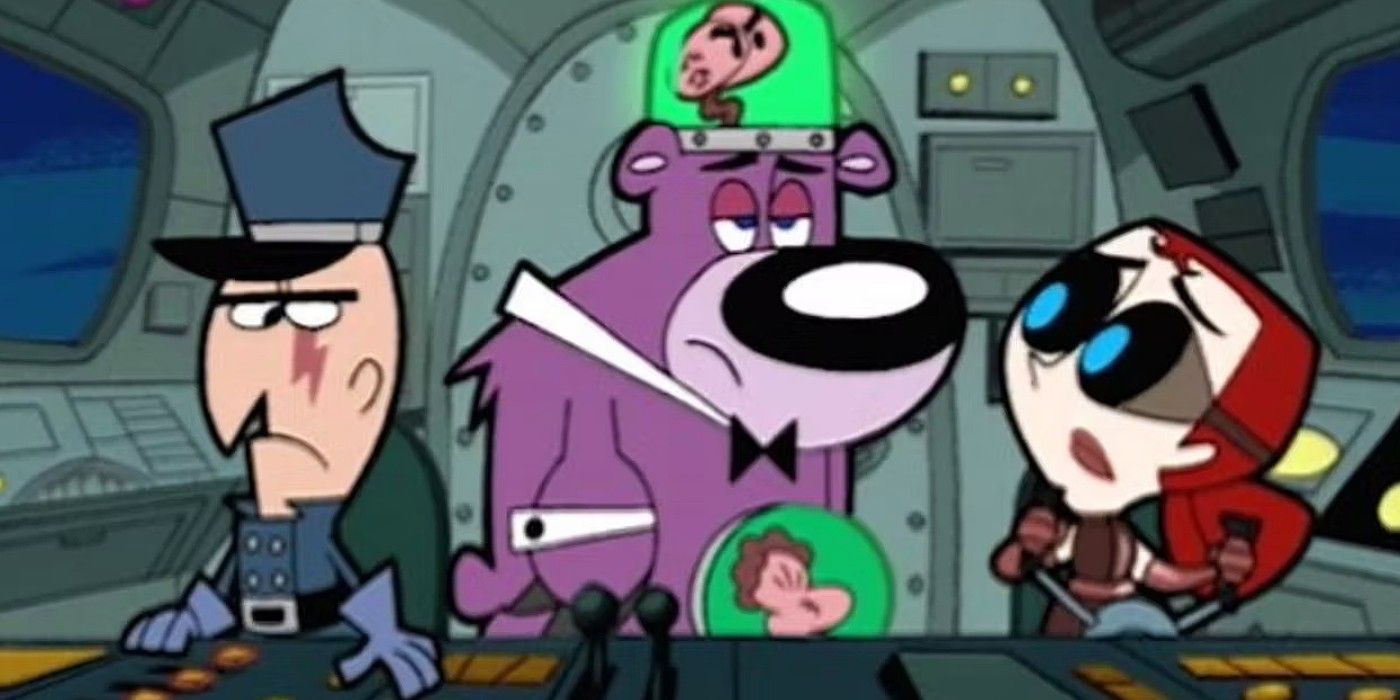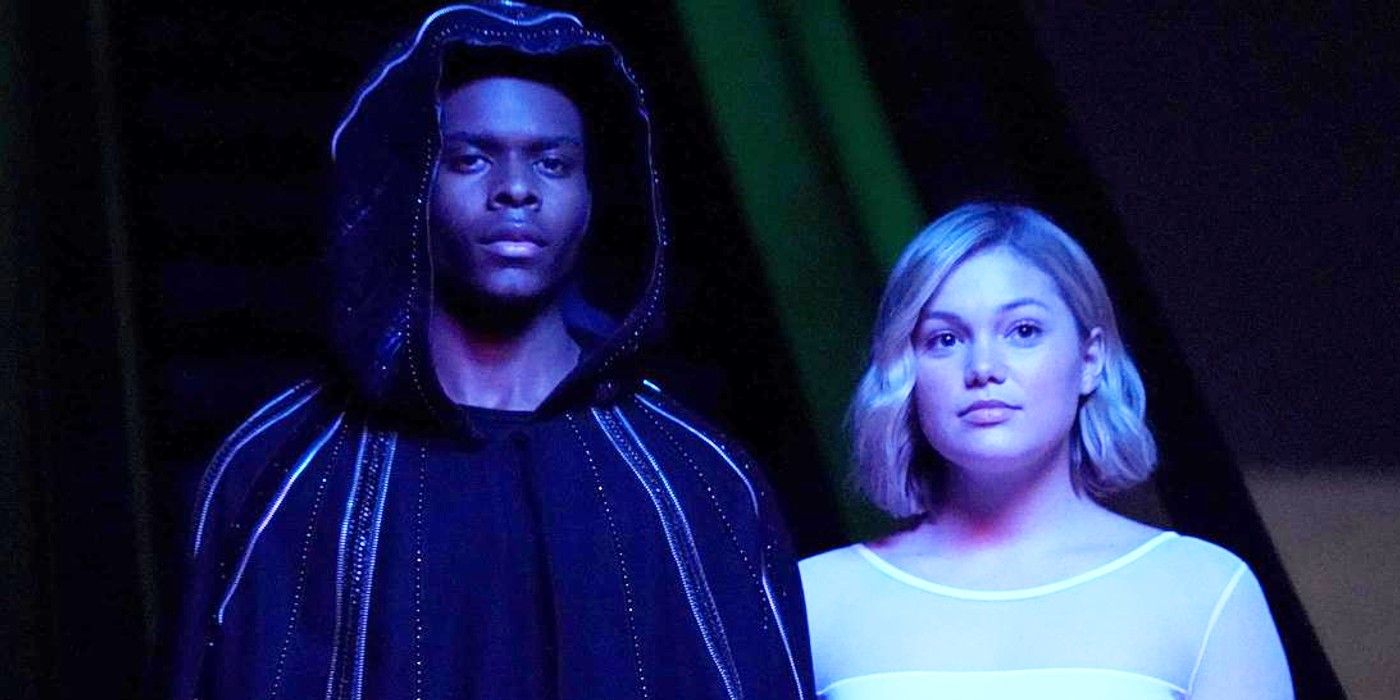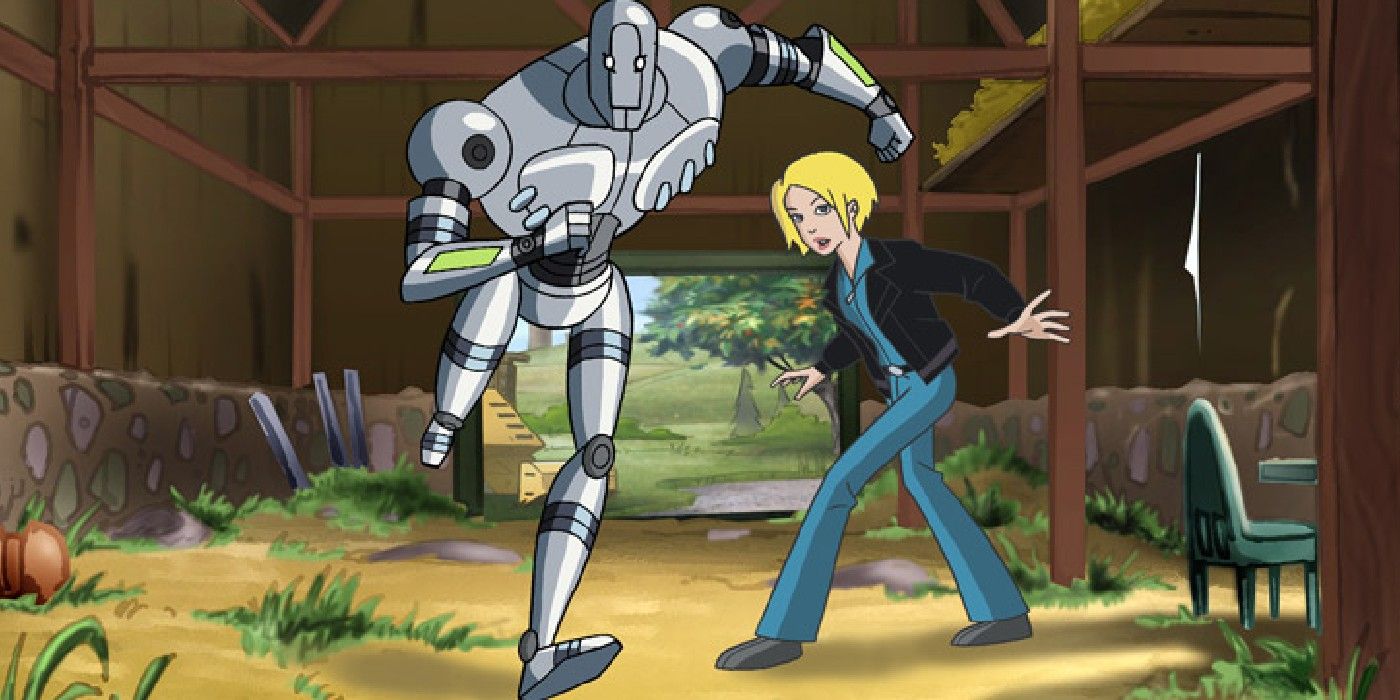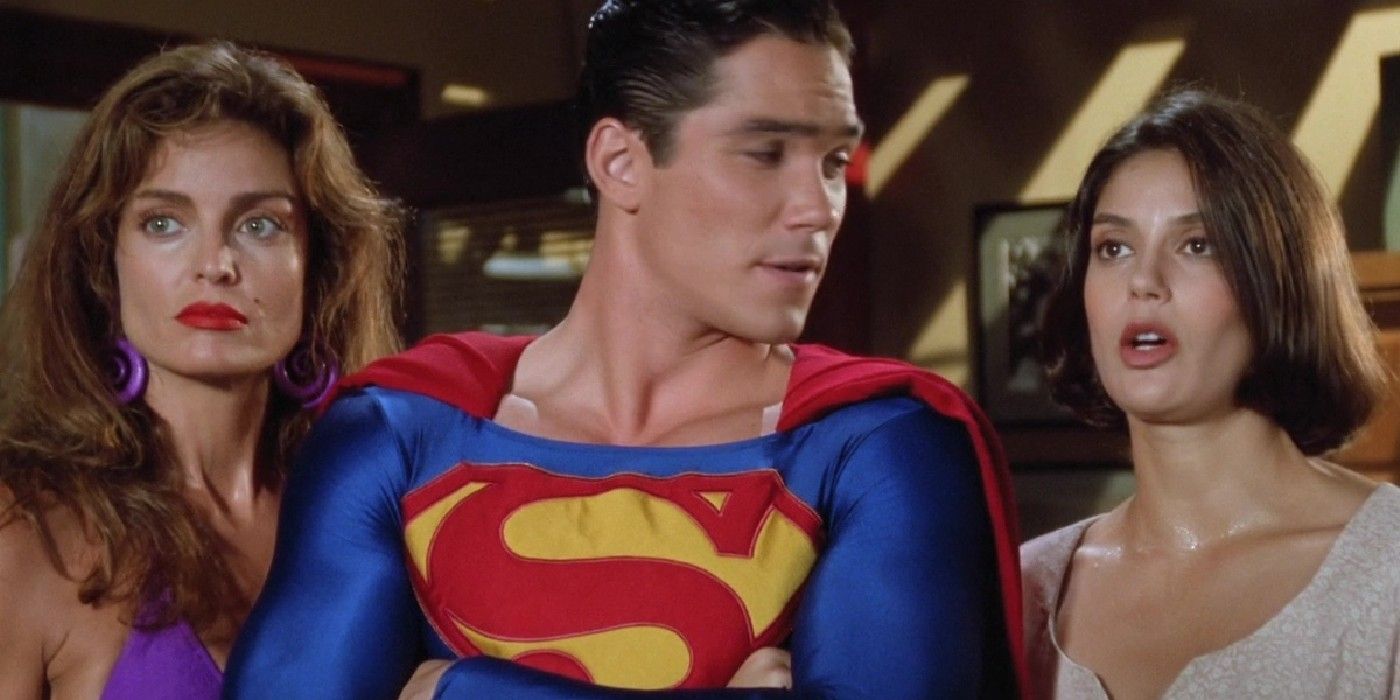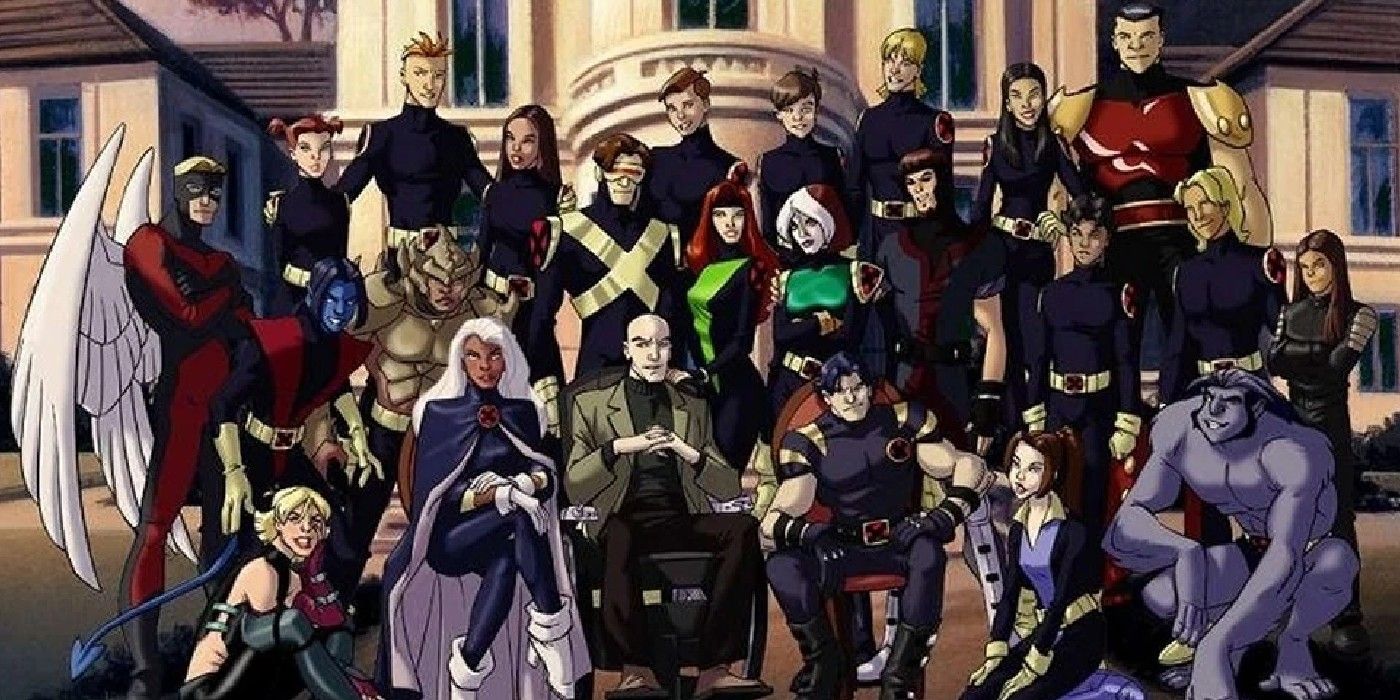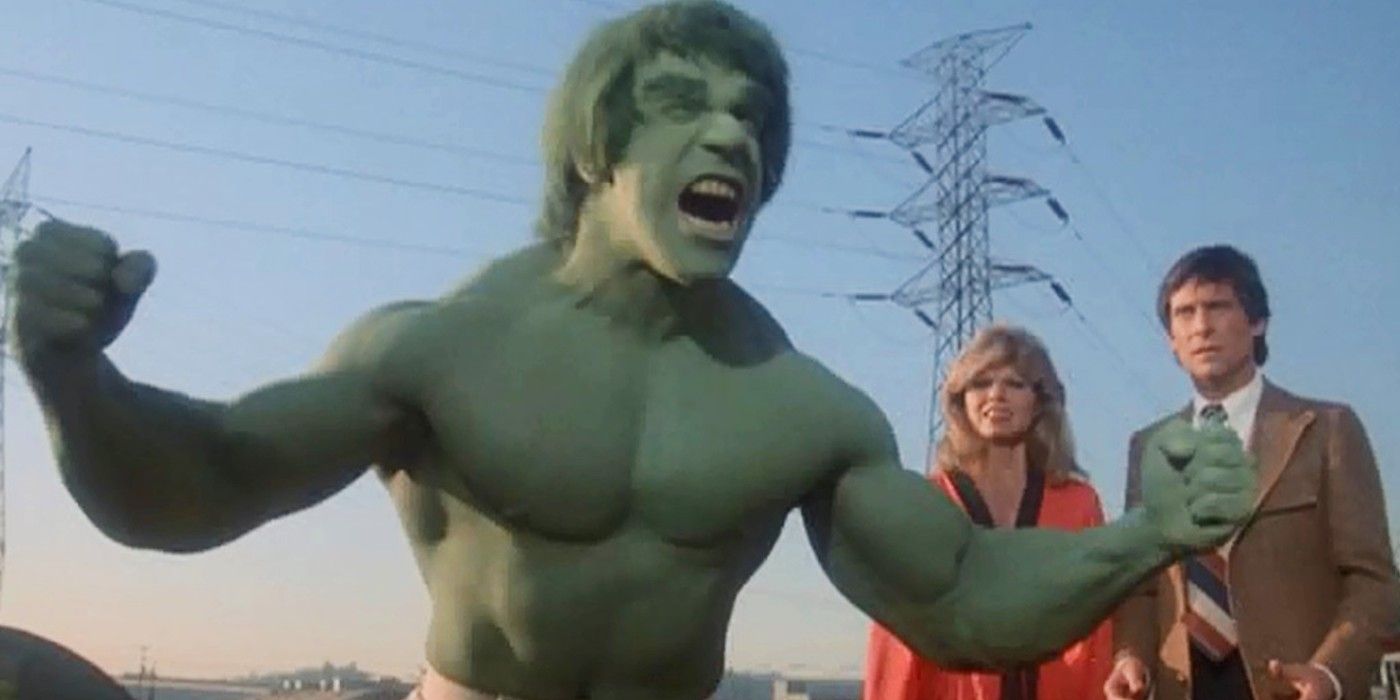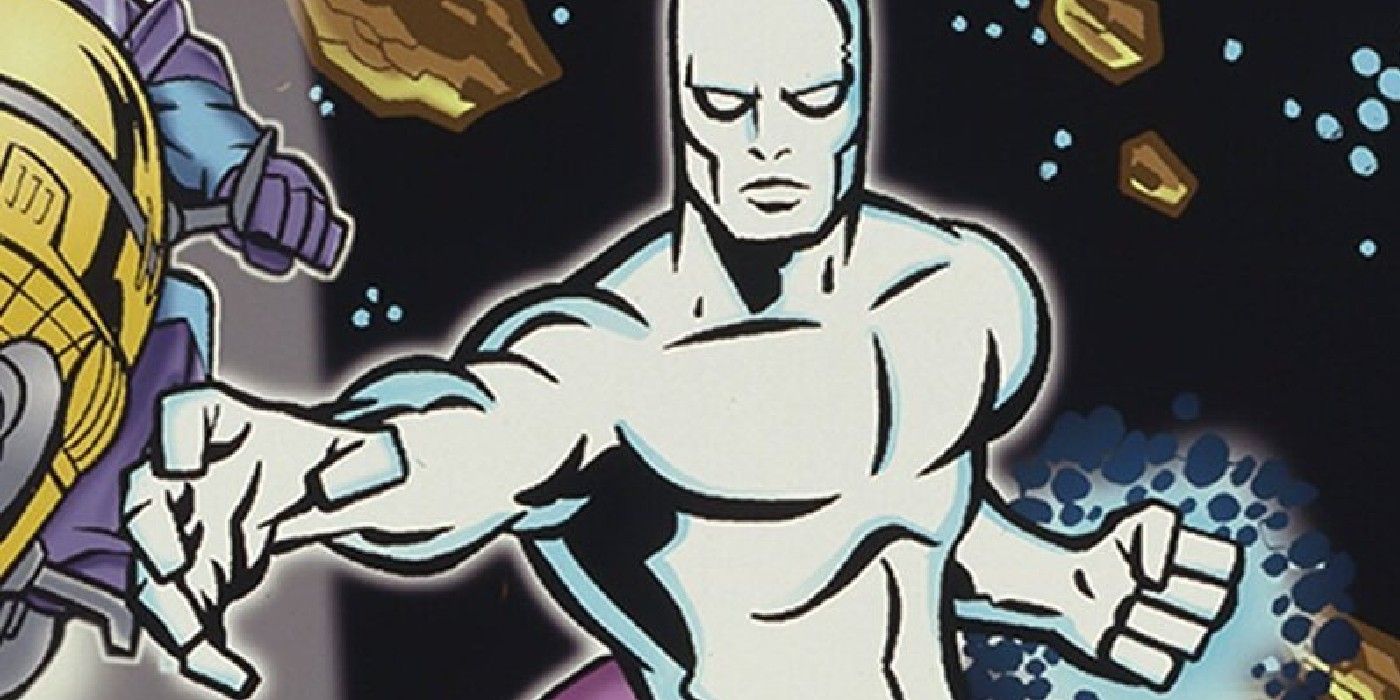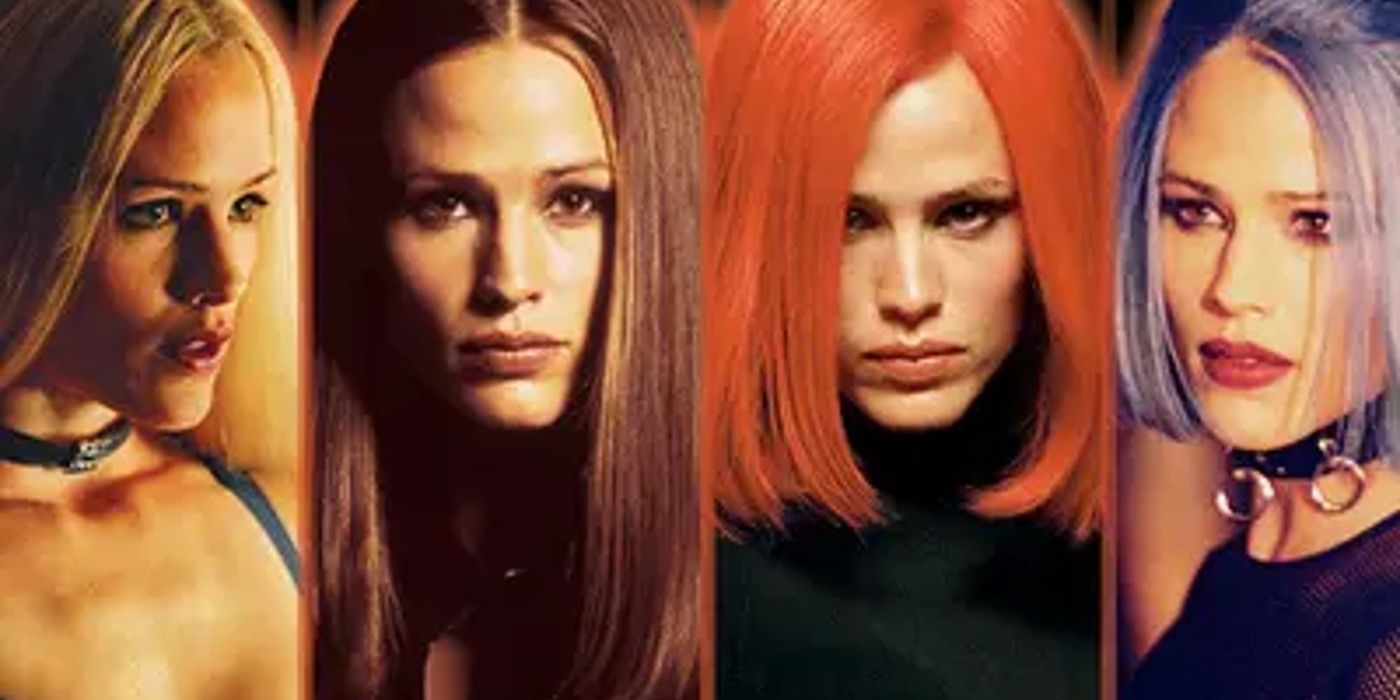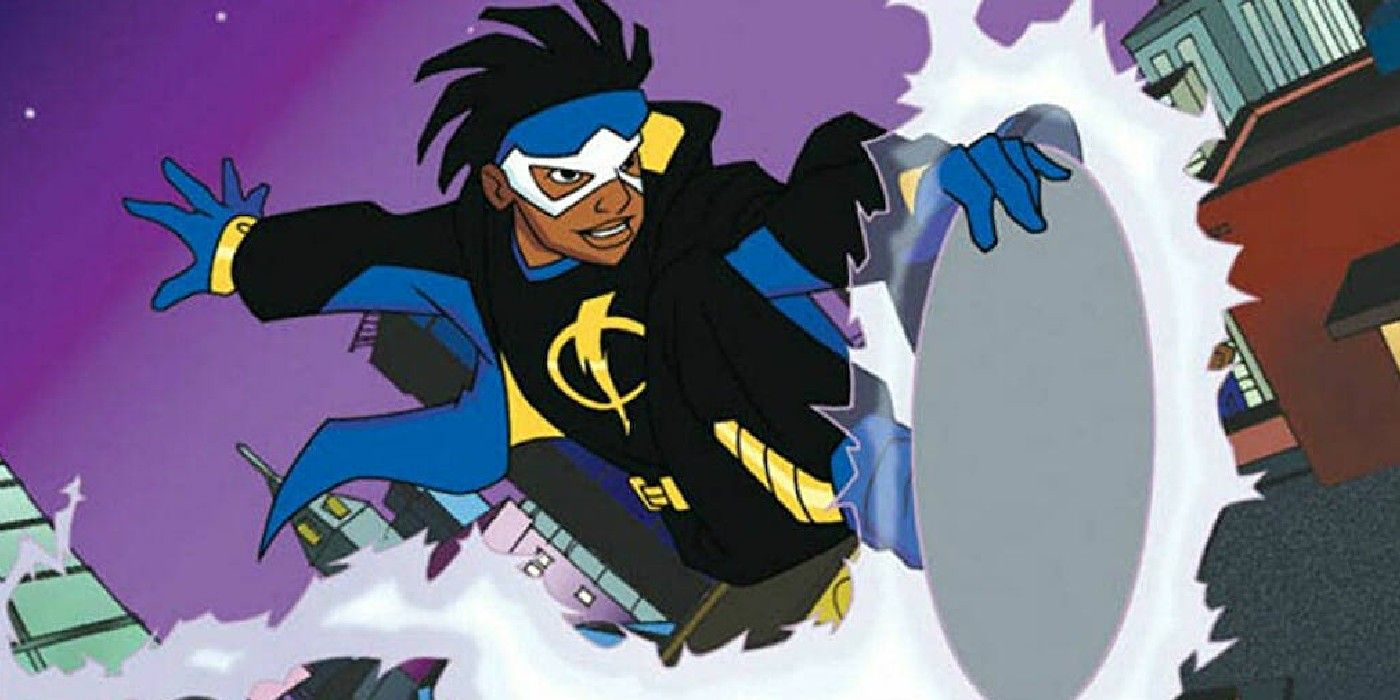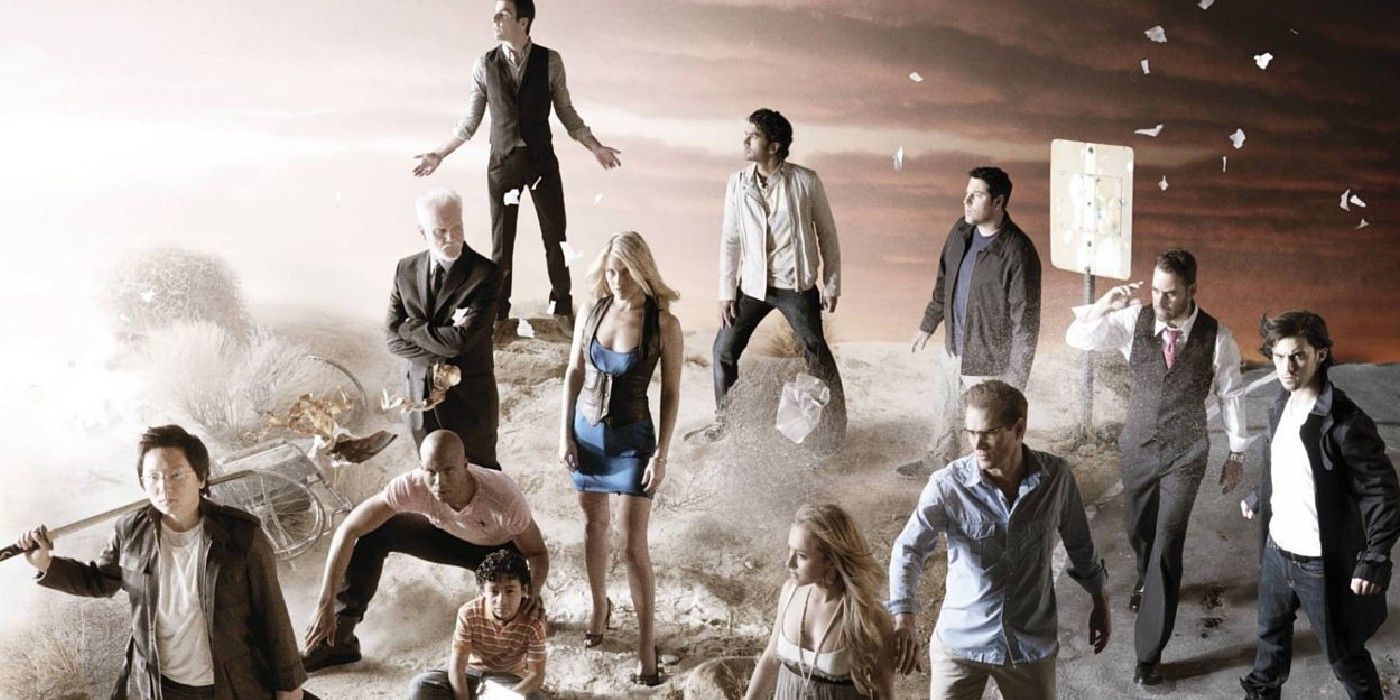Whether they're straightforward role models or cynical deconstructions, superheroes are the dominant force in today's pop culture. Superheroes are practically everywhere now, and they can be seen in cinemas or on television. While this may be typical now, this wasn't always the case, as things were wildly different just a few years ago.
Before the current superhero zeitgeist, superhero shows were less common, but the right ones attracted high praise and views. As good or popular as these shows were, they weren't immune to time and outside factors. As a result, some critically acclaimed superhero shows either faded into irrelevance or were all but forgotten.
10 Evil Con Carne Became A More Popular Show's Spin-Off
These days, "Evil Con Carne" is known as the supervillain group who often popped up in The Grim Adventures of Billy and Mandy. Originally, they were the stars of their own darkly humorous namesake cartoon that was just as praised as Billy and Mandy. Problem is, Billy and Mandy took off while Evil Con Carne didn't.
Evil Con Carne was special for many reasons, especially because it was one of the rare original superhero shows to star villains instead of heroes. The series continues to endure as a cult recommendation, but general audiences mostly associate the name "Evil Con Carne" with Endsville's resident villains instead of their old stand-alone cartoon.
9 Cloak And Dagger Was Lost During The MCU's Move To Disney+
Before the MCU became exclusive to Disney+, Marvel Television worked with different networks. One such collaboration was ABC's Cloak and Dagger, which was a well-received superhero drama that got two seasons and a Runaways crossover. Like other MCU shows made before the Disney+ move, Cloak and Dagger was lost in the shuffle.
Unlike the still popular Agents of S.H.I.E.L.D. or most of Marvel's Netflix output, Cloak and Dagger was canceled too early for it to gain a following, and it was buried by the hype for the MCU's Disney+ originals. Tandy and Tyrone are barely mentioned online, and it's highly unlikely that they'll reappear in the MCU soon.
8 The Zeta Project Is One Of The DCAU's Most Overlooked Entries
Regardless of how popular or underrated it was in its prime, most cartoons under the DC Animated Universe's banner are bound to be someone's childhood favorite. One show that flew almost under everyone's radar was The Zeta Project, a Batman Beyond spin-off that was unique for starring next to no canonical DC Comics characters.
The Zeta Project was praised for its darker themes and mature yet accessible take on a sentient robot, but it was canceled after just two seasons. Despite airing during the DCAU's peak in the early 2000s, The Zeta Project never found its audience. At best, The Zeta Project is only vaguely remembered today by the most dedicated cartoon aficionados.
7 Lois And Clark: The New Adventures Of Superman Was Supplanted By Its Spiritual Successor
The problem with the first two Superman movies was that they were so good that they accidentally trapped Superman media in a corner. One of the few to escape Christopher Reeve's shadow was Lois and Clark, a drama that focused on Lois Lane and Clark Kent's romance more than Superman's heroics.
As big as Lois and Clark was in the '90s, it was all but buried thanks to a combination of a disappointing finale and succeeding Superman shows like Smallville eclipsing it. Worse, Lois and Clark was essentially replaced by The CW's modern counterpart Superman and Lois, which is currently regarded as one of Superman's best adaptations yet.
6 X-Men: Evolution Was Overshadowed By The '90s Cartoon
There's probably nothing as nostalgic and revered as X-Men: The Animated Series, which continued to be popular years after its end in 1997. This popularity earned it a revival in the form of the upcoming X-Men '97. The same, unfortunately, can't be said for X-Men: Evolution, the Mutants' animated reboot in 2000, which was just as well-received as its '90s predecessor.
Back then, X-Men: Evolution wasn't just seen as the perfect companion piece to the X-Men movies, but it was also viewed as the Mutants' much-needed update in the New Millennium. While X-Men: Evolution is remembered fondly by those who grew up watching it, it doesn't command the same level of popular relevance as its 1992 forerunner does.
5 The Incredible Hulk (1977) Is Unfairly Remembered As A Punchline
Much like Batman's '60s show and Super Friends, the Incredible Hulk's first live-action adaptation is often regarded as a joke. Most of the jokes stem from The Hulk just being Lou Ferrigno in green body paint, but what many forget is that The Incredible Hulk wasn't just one of the first live-action superhero shows, but also one of the most important.
The Incredible Hulk was such a success in 1977 that it lasted for five seasons and five TV movies. It could be argued that if not for The Incredible Hulk, the groundwork for today's superhero TV wouldn't exist. Despite its longevity and impact, the show faded into obscurity and is only remembered for a green bodybuilder and "The Lonely Man Theme."
4 Silver Surfer Fell Victim To Marvel Comics' Bankruptcy
When it comes to adaptations of Jack Kirby's legendary artwork, nothing comes close to the Silver Surfer's 1998 cartoon. Besides bringing Kirby's art to life, Silver Surfer was also praised for being a compelling cosmic epic. Silver Surfer's first season even ended with a daring cliffhanger where the eponymous hero died, but then the show got canceled.
Silver Surfer wasn't canned because of ratings or reception, but because of Marvel Comics' bankruptcy. Thanks to this, Silver Surfer and other Marvel cartoons were all but forgotten, with Spider-Man and X-Men being the rare exceptions. Had Silver Surfer got the episode count it deserved, it wouldn't be as obscure as it is today.
3 Alias Is A Groundbreaking Trend's Forgotten Example
The late '90s and early 2000s saw a surge of female-led genre fiction, and Alias was one of the pillars of this important movement. Almost like a Black Widow show before the MCU was even born, Alias is often mentioned today in the same breath as Buffy the Vampire Slayer or Xena: Warrior Princess. Unfortunately, that's as far as its legacy goes.
As well-received as it was, Alias is little more than a footnote today. There's not much clamor for Alias now, and this is only worsened by the fact that Jessica Jones' pivotal Marvel MAX revival was also titled Alias. Sydney Bristow's conflicted loyalties to the CIA and SD-6 helped pave the way for genre heroes, but her series isn't exactly timeless.
2 Static Shock Doesn't Enjoy The Same Legacy Its DCAU Contemporaries Do
The case could be made that Static Shock is one of the DCAU's best (if underrated) entries, and one of the most important superhero stories ever aired, but this glowing reception didn't translate into modern relevance. Due to weak toy sales among other things, Static's award-winning superhero stories were canceled in 2004 and practically forgotten.
For a while, Static was popular enough to crossover with other DCAU shows and spark interest in his Milestone Comics run. Static Shock was influential enough to be credited for the DCAU's groundbreaking diversification, but the show itself remains little more than a footnote among DCAU completionists and a cult favorite for casual viewers.
1 Heroes Was Made Obsolete By The Superhero Resurgence
Although the 2000s was home to some of DC and Marvel's best movies, the same can't be said for their televised arm. In terms of television, there was a vacuum for quality superhero entertainment from the publishing giants, and this gave original superhero stories a chance. Enter Heroes, which eclipsed DC and Marvel during its prime in 2006.
Heroes was just like an episodic X-Men remake, and it showed how superhero stories could be told dramatically every week. As popular and critically praised as Heroes was, it was rendered irrelevant in the 2010s when DC and Marvel improved their outputs so drastically that a facsimile of their most popular characters and stories wasn't enough.

